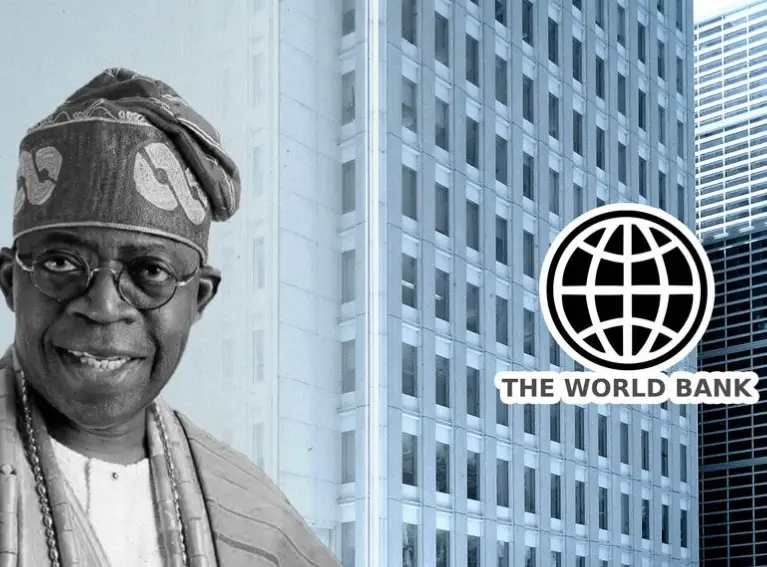A recent World Bank report highlights an alarming increase in Nigeria’s poverty levels, attributing it to recent economic and fiscal reforms.
Notable changes include the removal of the petrol subsidy and restructuring of the foreign exchange market rate.

While acknowledging the Federal Government’s efforts as ‘bold reforms’ to avert a fiscal crisis, the bank underscores the temporary hardships these measures have imposed on the populace.
Despite commending the government’s actions, the World Bank points out that the policies have escalated living costs, pushing more Nigerians into hardship, with an estimated 104 million now living below the poverty line.
The report reveals a concerning rise in the number of poor people in Nigeria, growing from 95 million in 2021 to 100 million in 2022.
In comparison, the Nigerian Bureau of Statistics indicates figures of 82.9 million in 2019 and 85.2 million in 2020.
Outlined in the World Bank’s Nigeria Development Update titled ‘Turning the Corner: Time to Move From Reforms to Results,’ the report emphasizes the imperative to sustain the reform momentum, completing ongoing reforms, and addressing their associated costs.
Additionally, it notes that inflation remains alarmingly high, reaching 27.3% Year-on-Year in October 2023, largely influenced by the one-off price impacts of the gasoline subsidy removal.
‘‘The impact of this is especially hard on poor and vulnerable citizens. The FX market has remained volatile and in a period of continuing adjustment to the new policy approach, with significant fluctuations in the exchange rate in both the official and the parallel markets. Revenue gains from the FX reform are visible.
‘‘However, there is a need for more clarity on oil revenues, especially the financial gains of Nigeria National Petroleum Corporation Limited, NNPCL, from the subsidy removal, the subsidy arrears that are still being deducted, and the impact of this on Federation revenues.”
In his appraisal of the country’s reforms, Shubham Chaudhuri, World Bank Country Director for Nigeria, stated: “The petrol subsidy and FX management reforms are critical steps in the right direction towards improving Nigeria’s economic outlook. Now is the time to truly turn the corner by ensuring coordinated fiscal and monetary policy actions in the short to medium term.
“Continued reform implementation can ensure that Nigeria benefits from the difficult adjustments underway. This includes ensuring that improved oil revenues following the sharply increased PMS price accrue to the Federation.
‘‘In the medium-term, the economy will then begin to benefit from increasing fiscal space for development spending, including on power and transport infrastructure, as well as on human capital.”
He further said that between N300 billion –N400 billion was expended on fuel subsidy monthly, before the subsidy removal and that the expectation was that the NNPCL should have been paying such amount to the Federation Account, but which has not been the case.







